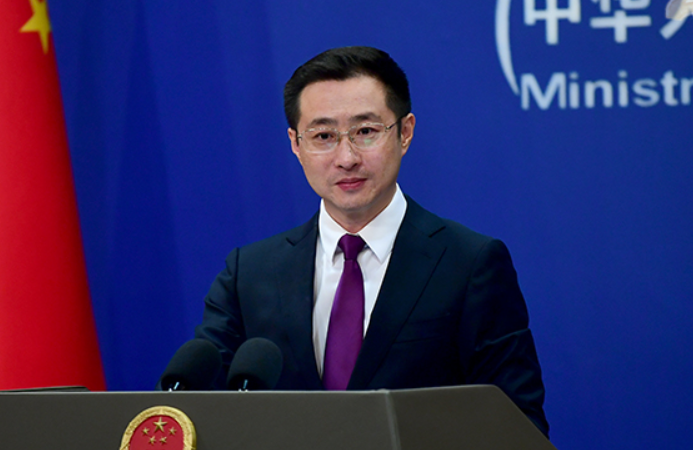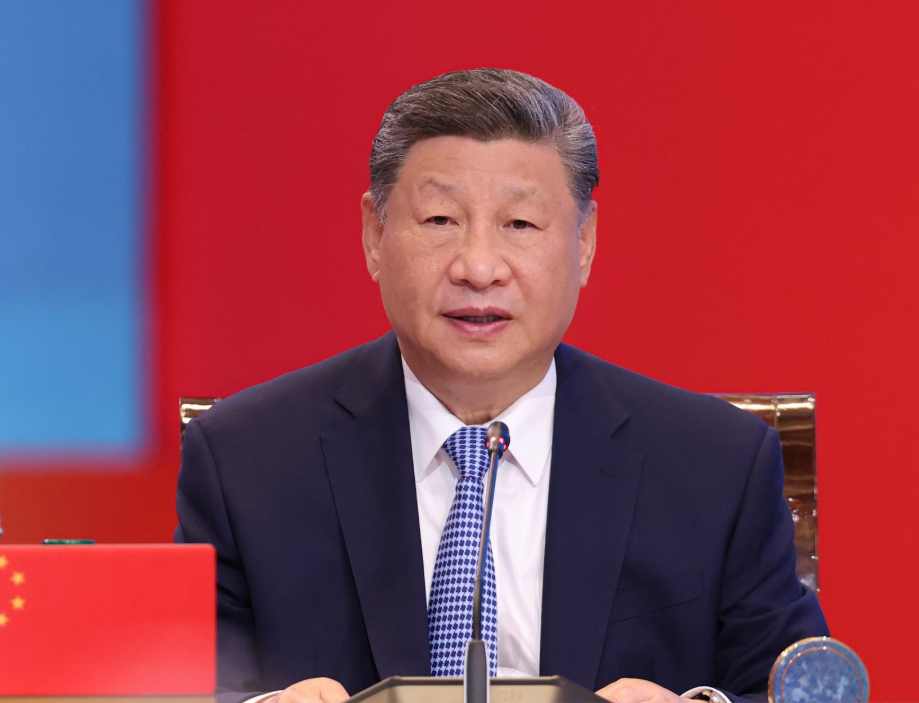China has issued a strong rebuke to Donald Trump’s latest tariff threats targeting Russia and its trade partners. Responding to Trump’s 50-day ultimatum to end the Ukraine war, Beijing called the US move illegal and counterproductive. As top SCO diplomats gathered in Beijing, including Russia’s Sergey Lavrov and India’s Dr. S. Jaishankar, China reaffirmed its opposition to unilateral sanctions and vowed deeper multilateral cooperation to resist Western pressure.
China Reacts Strongly to Trump’s New Tariff Threats on Russia
In a significant escalation of geopolitical tensions, US President Donald Trump’s new tariff warning to Russia and its trade partners has drawn a sharp response from China. The Chinese government issued a strongly worded statement denouncing the US move as illegal and an example of coercive diplomacy. China’s reaction reflects growing global unease over Washington’s use of economic pressure to achieve political goals, especially as the war in Ukraine drags into its fourth year.
Trump, who returned to the White House in January 2025, recently issued a 50-day ultimatum to Russian President Vladimir Putin. The ultimatum demands an end to Russia’s ongoing military campaign in Ukraine, failing which the United States would impose secondary tariffs on countries still maintaining trade ties with Moscow. Trump’s strategy is clearly aimed at isolating Russia further and crippling its ability to circumvent Western sanctions.
However, China was quick to voice its disapproval. A spokesperson for the Chinese Foreign Ministry declared that Beijing “firmly opposes illegal unilateral sanctions and long-arm jurisdiction.” The spokesperson added that there are no winners in a tariff war and that coercion and pressure will not resolve complex global conflicts.

China’s response comes at a time when it hosted an important diplomatic gathering in Beijing. Foreign ministers from the Shanghai Cooperation Organization (SCO) member states assembled in the Chinese capital for a meeting of the Council of Foreign Ministers. Key participants included Russian Foreign Minister Sergey Lavrov, Indian External Affairs Minister Dr. S. Jaishankar, and Iranian Foreign Minister Abasar Aagshi.
During the SCO meeting, Chinese President Xi Jinping urged member countries to improve mechanisms to address security threats collectively. Xi emphasized the need to strengthen multilateral institutions and reduce reliance on Western-dominated global governance models. For China, the SCO has long been seen as a counterbalance to Western alliances such as NATO.
President Xi also held a bilateral meeting with Sergey Lavrov, reaffirming China’s support for Russia in multilateral forums. According to China’s state-run news agency Xinhua, Xi told Lavrov that both countries should work together to lead the Global South and promote the reform of the international order in a direction that is “more just and reasonable.”
Lavrov’s visit to China followed his diplomatic trip to North Korea, where he reportedly secured Pyongyang’s backing for Russia’s military efforts in Ukraine. The sequence of visits highlights Russia’s push to build a coalition of allies outside the Western bloc, a move Beijing appears to support tacitly.
China’s position on the Ukraine conflict has been one of strategic ambiguity. While claiming neutrality, Beijing has refrained from condemning Russia’s military actions or calling for the withdrawal of its troops. Instead, Chinese officials have continuously stressed the need for a negotiated settlement, without placing blame on Moscow.
This ambivalence is now further complicated by Trump’s aggressive new trade strategy. By threatening secondary tariffs, the United States is effectively warning China and others that continued economic engagement with Russia will come at a steep cost. Such threats, however, are likely to deepen divisions rather than achieve compliance.
China views this form of economic blackmail as a violation of international norms. The foreign ministry’s statement made it clear that Beijing opposes the imposition of sanctions without United Nations approval. China has historically championed sovereignty and non-interference in domestic affairs, a stance that aligns with Russia’s own foreign policy principles.
The escalating confrontation between China and the United States over the Russia-Ukraine conflict could have broader implications. China is the largest trading partner for many of Russia’s remaining allies and serves as a vital economic lifeline for Moscow amid sweeping Western sanctions. If Trump proceeds with secondary tariffs, the global trade environment could become even more volatile, potentially triggering retaliatory measures.
Moreover, China’s growing influence within the SCO and other multilateral platforms could lead to a more organized pushback against Western economic pressure. Beijing has already positioned itself as a leader of the Global South, seeking to reshape the global order to reflect the interests of emerging economies. In that context, Trump’s latest move may accelerate efforts by China and its allies to build alternative financial systems and trade mechanisms, reducing reliance on the dollar-dominated structure.
Despite its criticism of US actions, China has so far maintained a calculated posture, avoiding direct confrontation while asserting its principles. The current diplomatic standoff reveals the fragile balance that global powers must navigate in a world increasingly shaped by multipolar tensions.
As the clock ticks on Trump’s 50-day ultimatum to Russia, all eyes are now on how China and other trade partners of Moscow will respond. Will Beijing hold firm in its defiance, or will it seek a middle ground to avoid further economic fallout? One thing is clear: China’s role in this geopolitical standoff is central, and its choices will significantly influence the future trajectory of global diplomacy and trade.
Disclaimer:
This article is based on publicly available statements and developments as of July 2025. Political positions and diplomatic strategies are subject to rapid change. Readers are encouraged to follow reliable news sources for real-time updates. The content does not endorse any particular political position or state policy.

